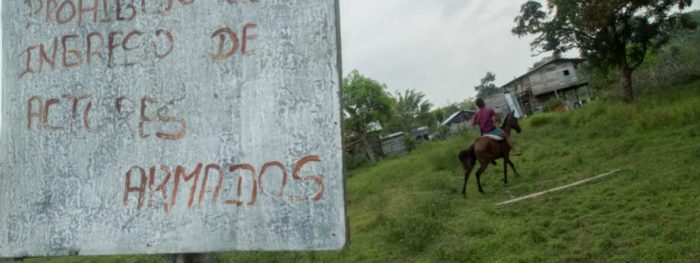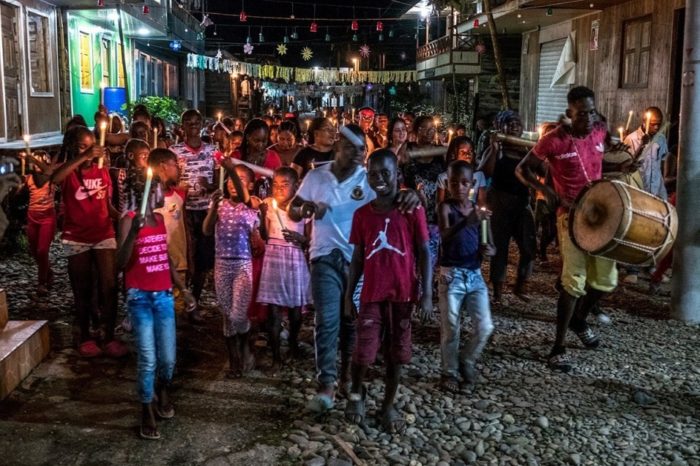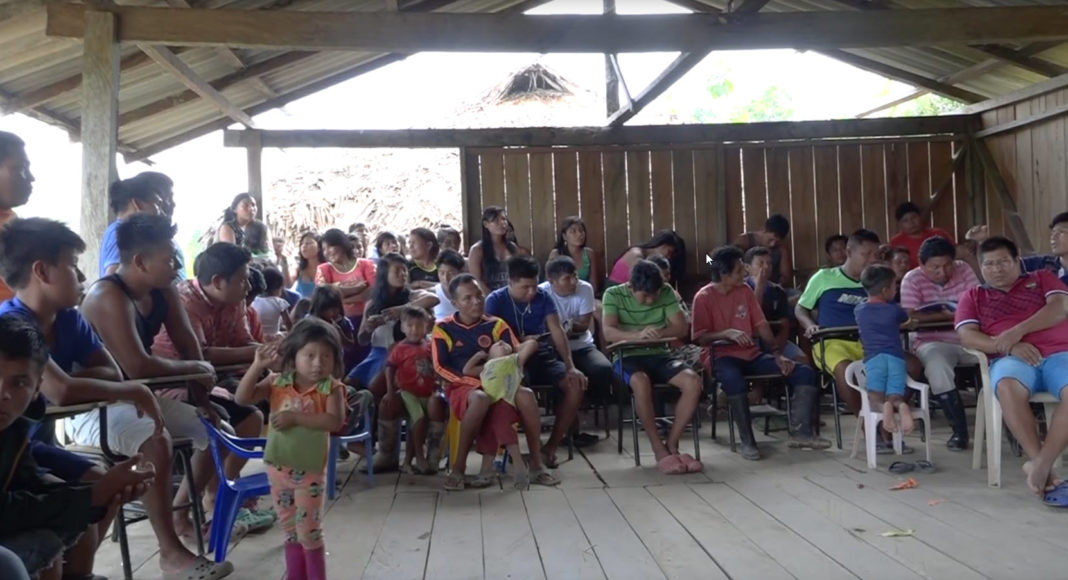Christian Aid and its partners have been working to tackle violence and build peace in Colombia for more than two decades. Three years ago, shortly after the government of Colombia signed a Peace Agreement with the Revolutionary Armed Forces of Colombia (FARC), Christian Aid’s Research, Evidence and Learning team began to design Ten Years, a long-term study of change.
In the second of four posts, Christian Aid explains why it chose to make a long-term study, and how it sought to involve local partners in the study. The Ten Years project was described in the first post.
Why a long-term study of change?
Through taking the longer view, and working with people to understand their perspectives on change, we hope to strengthen the way we work together, and bring about more positive futures.
Kate newman, Head of Research, Evidence & Learning at Christian Aid
All NGOs routinely invest in learning from their practice. But taking a long-term view of social change, grounded in the experiences of those involved in their work, is much less common.
Christian Aid’s REL team was set up in 2016 to strengthen the production and use of evidence, and to share it within and beyond the organisation. Much of Christian Aid’s evidence about its practice takes the form of programme evaluations. But complex social change doesn’t fit easily into programme frameworks. Part of REL’s rationale for setting up a long-term study was to enable some of the different people involved in Christian Aid’s work to regularly share their perspectives on change over the course of several years, moving beyond the project framework.
In Colombia, Ten Years of Change is capturing the perspectives and experiences of Christian Aid Colombia, its long-term partner human rights NGO Inter-Church Commission for Justice and Peace (CIJP), and members of marginalised Afro-Colombian and Indigenous communities in the Valle del Cauca. It is mapping these onto the wider changes in the local and national context brought about by the implementation phase of the 2016 peace agreement.
On paper, the idea of a long-term study of the change triggered by the peace agreement was exciting. But translating it into practice in Colombia presented challenges and dilemmas.
Dilemmas: pace, participation, evidence and accountability
Co-creating research, involving different partners with different experiences and perspectives, with very few resources, is a slow and reflective process. Alongside this, despite initial optimism, human rights violations did not end with the peace agreement. This meant that the relatively relaxed and reflective rhythm of the study contrasted sharply with the urgency of ongoing work and crisis situations for CIJP and the communities in the Valle del Cauca region that they brought into the study.

So, the first stage of Ten Years of Change was characterised by tension between the urgent need to respond to a violent context, and the demands of the study to stop, reflect and be systematic in collecting and analysing data, in order to understand that context.
A qualitative and participatory approach was built in to the research, and initially this seemed a good fit for Colombia. The Christian Aid Colombia country manager was enthused by the idea of participatory action research and communication. Moreover, the ingrained influence of Liberation Theology in CIJP also fitted well with this approach; early conversations with the CIJP leadership made frequent reference to the work of Augusto Boal and the importance of participatory research.
Differences of experience and perspective
But as time passed, differences emerged in the meanings of ‘participatory’ applied to the study by REL and CIJP. For CIJP, ‘participatory’ implied talking to people and eliciting evidence of abuses where they had happened. For REL, it was much more about a systematic approach to working with communities to build research based on their perspectives, and supporting them in reflecting on how to act on the basis of their analysis. Moreover, REL was concerned about the need for structure and consistencyDi in the research so that, for example, the data gathered could be systematically managed and analysed to respond to the research question.
There were also different understandings of evidence. While CIJP excel in evidencing rights abuses for a public – and sometimes legal – audience, they were less familiar with creating and analysing evidence as part of a long-term research process.
Dynamics of accountability also proved challenging. The research led to the development of a formal grant agreement between Christian Aid and CIJP, outlining mutually agreed responsibilities and deliverables. This was very different from the historical relationship between Christian Aid and CIJP, which was rooted in accompaniment and solidarity. Christian Aid Colombia has long supported CIJP’s agenda and work plans, but in Ten Years, the agenda lay more firmly with Christian Aid. This presented challenges for the relationship, with Christian Aid Colombia being hesitant in making demands about the specifics of implementing the study, and REL frustrated when it appeared that processes were not being implemented as agreed.
Colombian voices on change
Despite the challenges and dilemmas of establishing the study, it has produced several outputs which highlight different perspectives on change.
It is like saying the war ended, when actually it is just beginning.
Luisa Mosquera, Naya leader
The words of Luisa Mosquera, a Naya leader, feature in one of four videos which brings together Indigenous and Afro-Colombian voices on what has changed in their communities since the peace agreement was signed. They stand as evidence of the human rights abuses that continue in the region despite the peace agreement.
In addition to this community-level work, Ten Years has created an opportunity for CIJP staff to reflect on their own organisational theory of change, and how it has shifted in response both to the peace agreement, and to their understanding of how the communities they work with see change.
Protecting lives is still necessary, but so is the strengthening of capacity in memory and justice, territory and environment, democracy and participation.
Yohana López of CIJP

The research has also opened a space for a yearly discussion with staff of Christian Aid Colombia, which provides an opportunity to link community and partner perspectives with those of national and international civil society, and reflect on change.
It is ironic, this moment we are living – the narrative of the government abroad is completely different from the narrative we have in the country… Civil society is trying to adjust and re-accommodate.
Christian Aid staff member, 2018
Through these spaces for reflection and learning, Ten Years of Change in Colombia is providing a unique way to explore and link change at different levels, and create opportunities for very different stakeholders to reflect on how they respond to it.
The lessons learned from setting up the study in Colombia have been complimented by insights from the two other countries where Ten Years of Change was also established, Kenya and the UK. To find out more about the evolution of the whole study, hear more about the Colombia experience and what we have learnt across the different contexts, read our Practice Paper Balancing research and practice in an international NGO: reflections on setting up a long-term study of change.
Main image: Indigenous Wounaan Community, Naya Valley. Image from CIJP video.


